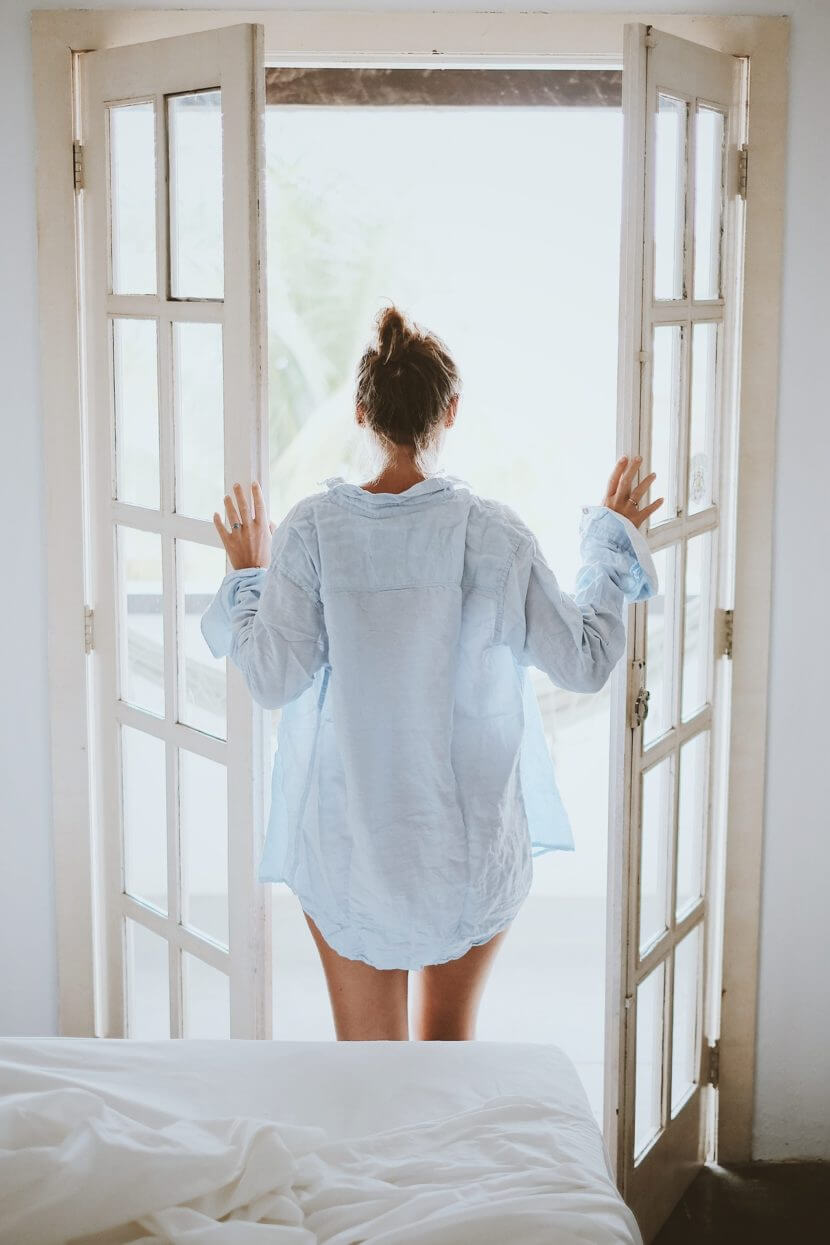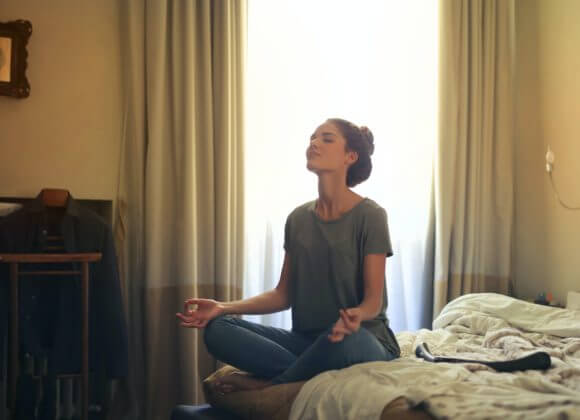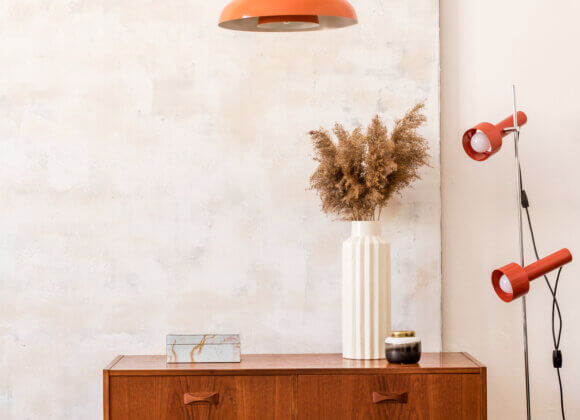Fresh air in the bedroom
A healthy indoor climate is absolutely necessary not only in living and working rooms, but also the bedrooms.
We spend between six and eight hours a night in our bedrooms on average. But unlike living and working spaces, ventilation of bedrooms is usually given little attention. In the process, the air in the sleeping quarters also increasingly loses quality in the course of the night. “Often, these are too small even for two people – at least as far as the room air is concerned,” knows interior analyst Peter Tappler. If fresh air is not supplied, the concentration of CO2 and other substances in the sleeping quarters increases.

Poor air affects the quality of sleep
For example, furniture, carpets, wall paint, floors, etc. constantly release substances that can be potential allergens into the indoor air. Humidity also increases significantly during the night, as up to 700 milliliters of moisture per person collect in the air through breathing and night sweating – but also in mattresses and bed linen. “Poor air quality can even affect sleep quality, which in turn causes performance and well-being to suffer,” Tappler explains.
Shock ventilation instead of tilting
This makes it all the more important to ventilate bedrooms regularly and properly. “Studies show that you should supply 20 cubic meters of fresh air per person per hour in the bedroom,” calculates the ventilation expert. According to him, one way to bring about this optimum condition is controlled residential ventilation with moisture recovery. “If this option is not available, you should open the bedroom window at least in the transitional period and during the night in summer,” Tappler said. If this is not possible due to noise or even the threat of energy loss, a window in another room should be opened and the door to the bedroom left open. If that is not an option either, then a good airing should be done before going to bed. “It’s all about shock ventilation. Just tilting a window is not a solution,” says Tappler. This procedure should be repeated in the morning after getting up. “Ideally, you put the bedding on the window sill so it can air out as well, or at least fold back the covers,” Tappler advises.
How long the windows should remain open depends on the outside temperature. “The colder, the shorter,” Tappler says. At higher temperatures, however, shock ventilation could take a good 20 to 30 minutes. For those who want to be on the safe side, he recommends the purchase of a CO2 meter. “From a concentration of 1,000 ppm CO2 in the room air should be ventilated,” says Tappler.
Landlust: Luxury real estate in the countryside
Urban: Luxury properties Vienna Urban
Villa location: Luxury properties Villa location
For ski fans: Luxurious living for ski fans
On the waterfront: luxurious living on the waterfront
Hotel service: Luxurious living with hotel service
Exquisite view: Luxurious living with an exquisite view
For golf fans: Luxurious living for golf fans
Classic elegance: Luxurious living in classic elegance












